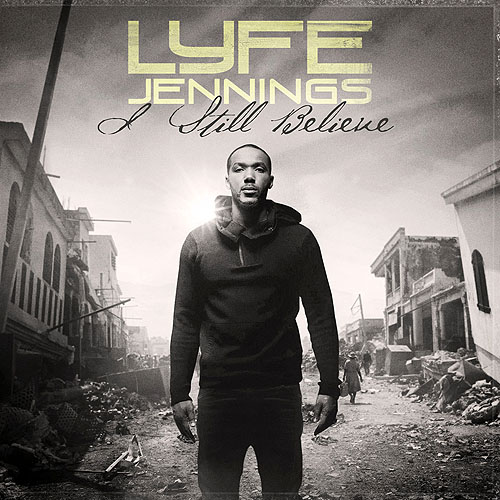
By Sidik Fofana
The search for a Dalai Lama is an exacting task. In the event that this highest of Buddhist leaders dies, the High Lamas search far and wide for a young boy who they believe to be Dalai Lama’s reincarnation. This boy must pass several tests—one of which involves correctly choosing the late Dalai Lama’s belongings out of series of similar artifacts—to confirm that he is indeed the Dalai Lama reborn.
The more remarkable feat, however, is how reverently these chosen ones comport themselves. All fourteen of these historical Tibetan figureheads have taken sacred novice vows where among ten basic precepts they refrain from wearing perfumes or garlands and taking food in the afternoon. At a young age, these spiritual chiefs, are reared for one reason: to spread Tibetan Buddhism throughout the world.
Now, for the moment of inevitable sacrilege. Savion Glover is the Dalai Lama of tap dance. Just like the Dalai Lama, Glover’s uniqueness was recognized at a young age, 12 to be exact, when he made his Broadway debut in the Tap Dance Kid. Just like the Dalai Lama, Savion Glover has dedicated his life to rigorous training and mental channeling. Just like the Dalai Lama, Savion Glover follows a line of anointed legends.
“I go through situations where I mention not just the son of sound, but the son of the pioneers of this world, not only tap dancers,” Glover reflects in the green room of Manhattan’s Joyce Theater where he has just brought the house down for his SoLE PoWER show, a whirling dervish of virtuosic hoofing featuring young dancers from GALxc9 and The Diva Patrol. The show rolls into a solo by the maestro himself, as Glover seizes the mic to invoke tap’s forefathers. “I’m basically reminding us what we all are. It could be the son of sound. It could be the son of Maya Angelou. It could be the son of John Coltrane,” explains Glover. “For dancers, it’s basically to remind us of the pioneers of every art form that has been created.”
For the legacy of tap dancing, it is especially crucial to honor the storied art’s practitioners. Tap dancing is a creative field that tends only to place a heavy spotlight on a few torchbearers. Think about the tap dancers you can name of the top of your head. For most people, it would be one or two. For the baby boomers, it’s Sammy Davis Jr. For the free-lovers of the 1960’s, it’s Gregory Hines. After the great Hines transitioned in 2003, there was only one logical choice for Dalai Lama, Glover, the man Hines himself called the “greatest tap dancer alive”. It’s a title that oozes with honor, responsibility…burden.

“People were saying all the time, ‘Oh you’re the savior of tap,’ but I guess that was in my earlier years. Now, I just feel a part of it,” Glover says of the “tap spokesperson” pressure or the lack there of. “I feel like I’m not as much responsible. There’s too many players in this thing we know as tap dance.”
Glover is right. There are too many players to be forgotten. Like the West African slaves who participated in Juba, a complex dance comprised of percussive feet shuffling and leg slaps. Many recognize these displaced African souls as the first tap dancers. They made music with their feet and hands because they did not have instruments. Too many players like Jimmy Slyde, the King of Slides a tap dancing juggernaut in his own right, whose name falls lifeless among most ears unaffiliated with the genre.
Circumstances like this—where tap has become a musical endangered species—elevate Glover beyond the mere title of “dancer”. Arguably the single most important representative of the art form, Glover’s every step embodies tap’s creative boundaries. Considering that the direction of a whole genre is at stake, Savion handles the autonomy well. During a SoLE PoWER solo at the Joyce, Glover redefines tap dance virtuosity. His heels sound like a pair of angelic jackhammers as he toys with the relationship between movement and sound.
Here’s one way to describe it: if you’ve ever played in the outfield during a baseball game and had a smoldering fly ball hit towards you, you may have noticed that you see the ball come towards you before you hear the sound of the hit. In the brief period between your reaction and your consideration of physical science (light travels faster than sound), you may have asked yourself, “Where is that sound coming from?”
It’s the same question you might ask at a Savion Glover show. As his mesmerizing shuffling and stylistic skids weave into smokescreens of polyrhythmic sputter, one can’t help but wonder when and how this movement corresponds to the sound. What is even more astounding is how, with a few calculated taps, Glover summons an international musical palette. A few taps here and all of sudden a salsa rhythm appears out of thin air. A few taps there, a Congo drum pattern. Did you know that even southern Crunk music has a tap dance rhythm? Savion does, and he finds great joy out of further testing his craft’s threshold.
“I try to keep my spectrum wide. I can go from Latin grooves to funk grooves to all types of grooves just to let the people know that this dance is music,” he says patiently. “It’s not just about the visual. It’s about the ear.”
If it is indeed about the ear, it’s also about listening up for the future in addition to the past. When Glover performs with his company of junior hoofers, the importance of this youthful invigoration shines. In one segment, the youngsters have him dressed in leather shorts and a trench coat bare-chested, with gold gloves and a pair of pointed yellow sunglasses in a ditty that feels like a collision between Rent and the Rocky Horror Picture Show. With this multi-national troop of young men and women, everything from Doo Wop classics to steel black chair props is fair play. How’s that for a fountain of youth?
But only a small percent of Glover’s reinvention comes from the inspiration of others. As of late, the 36 year old has embarked on a personal journey of self-cleansing. He stopped smoking weed, showing a marked effort to focus on the important things in life like touring and teaching kids tap dance at an afterschool program in Newark.
“As I continue to shed these things behind, I’m getting more strength and becoming more powerful as a man,” Glover reflects. “So I feel like I’m only getting better or have yet to peak.” Top that. Or tap it, rather.































 OKP: Why are you moving to Houston?
OKP: Why are you moving to Houston? Rhymefest: Is your school black?
Rhymefest: Is your school black? OKP: True indeed. On the cover of El Che, you're reading Invisible Man and you like comics right?
OKP: True indeed. On the cover of El Che, you're reading Invisible Man and you like comics right?

![Illegal Aliens [brothers]](http://cdn.shopify.com/s/files/1/0043/6992/products/alien_thumb_medium.jpg?1280384944)
![YGB [brothers]](http://cdn.shopify.com/s/files/1/0043/6992/products/youngblackgifted_medium.jpg?1280384944)
![YGA [brothers]](http://cdn.shopify.com/s/files/1/0043/6992/products/YGA-thumb_medium.jpg?1280384944)


